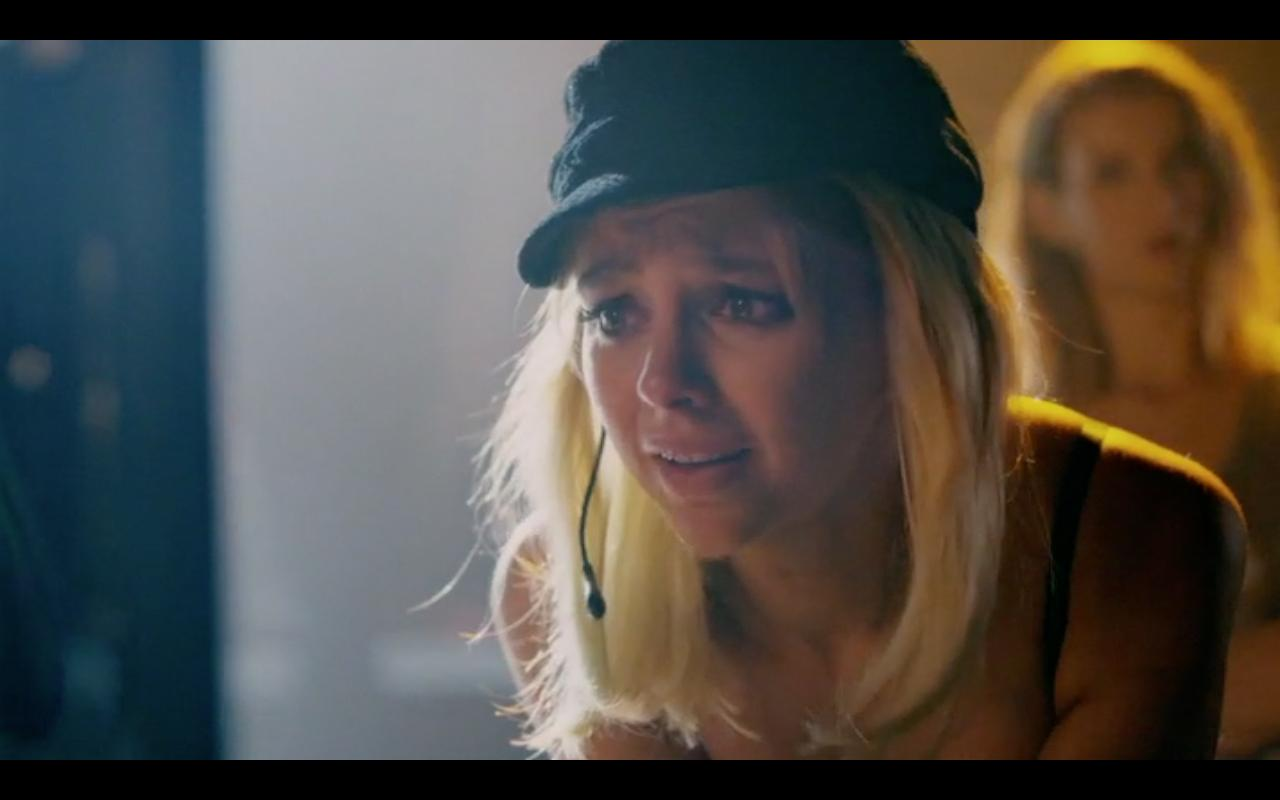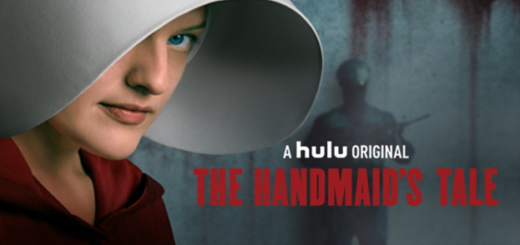BRITNEY EVER AFTER Review

When I first caught wind of Lifetime’s attempt to tell the story of Britney Spears, I was sure that the final product would be a hate crime. After all, not only is the network universally and humorously panned for its TV movies-of-the-week, but the folks at Lifetime have proven through their previous biographical exploits of Whitney Houston and Aaliyah that they cannot be trusted to dramatize real life events with any tact, accuracy, or artistic merit. Certainly Spears—who has been the subject of simultaneous adoration and scrutiny since she catapulted to fame 19 years ago—is an easy and ideal target for such mistreatment.
I considered boycotting the absurdly titled BRITNEY EVER AFTER for its seemingly exploitative nature and lazy execution. Could I call myself a true Britney loyalist if I watched a film she had herself publicly denounced? But, as Crossfader’s leading Britney expert, I could not pass up the opportunity to scholarly and categorically dismantle this Saturday night fodder. I started the movie with my mob torch already lit, but that ferocious flame slowly waned over the course of its 90 minutes (plus commercials), as anger gave way to sadness.
The film is told mostly through flashbacks framed by interludes of Britney (Natasha Bassett) filming a documentary in 2008, a year marked by personal and professional triumphs for Spears, following a period of struggle and chaos. The first flashback takes us back to 1998, which a well-placed Furby will corroborate. Britney, riding high on the success of “…Baby One More Time,” embarks on tour with NSYNC and jumps pigtails-first into a relationship with the swaggering Justin Timberlake (Nathan Keyes, who captures the boy bander’s white embrace of black culture with surprising accuracy). It’s the furthest we reach back in Spears’s life, as her days as a Mouseketeer are only alluded to, and her troubled childhood manifests only in father Jamie’s (Matthew Harrison) alcoholism and credit card debt.

It’s not young love in the ‘90s if someone’s tips aren’t frosted
In this initial exploration of Britney’s career beginnings, it’s apparent how earnestly the film approaches its topic, how desperately Bassett tries to nail Spears’s mannerisms and lilting Southern twang, and how meticulously writer Anne-Marie Hess combed through two decades worth of Britney fact and lore to cherry-pick the most pertinent anecdotes. The filmmakers seem to have wanted to do right by Miss Spears, and the film insists it has something new and important to say about the oft-retold story of the pop star who falls from grace. Unfortunately, good will and intent cannot override shoddy delivery.
BRITNEY EVER AFTER treats its subject in the same way tabloid magazines treated Spears in 2007. It’s a culmination of scandal and gossip, painting Britney as a helpless, naive girl whose search for love drags her down a rabbit hole of reckless behavior. The film never bothers to plunge below the surface of Britney’s need for a man’s attention or her very public breakdown; instead, in the worst possible narrative decision, it blames the former for the latter. With each heartbreak and villainous lover—K-Fed (Clayton Chitty), who neglects her and their kids in order to enjoy the perks of being Mr. Spears, or Sam Lufti (Benjamin Acre), who drugs and manipulates her in order to gain control of her money—Britney becomes more helpless, more naive, and more crazy. Even Britney’s 55-hour marriage to childhood friend Jason Alexander (Kelly McCabe) is painted as an honest and desperate attempt at matrimony, instead of what it actually was: a drunken practical joke gone too far.

Pictured: One of four facial expressions Bassett makes throughout the entire film
When we arrive at the breakdown era of Britney’s life, when she affects a British accent, shaves her head, and swings an umbrella at the paparazzi, the character has already been stripped of any personality or autonomy. What’s worse is that this troubling time in Spears’s story, realistically brought on by mental illness exacerbated by her celebrity, is treated like the aftermath of a bad breakup. “Britney’s in love with love,” her mother Lynne (Nicole Oliver) says, as if that adequately explains away her daughter’s every misstep. The insinuation that Britney’s breakdown is a result of her unanswered call for love is insensitive enough, but thereafter, flashbacks to Justin, a symbol of lost joy and innocence, are the motivation for Britney to regain control of her life, thus undermining any sense of strength or independence the character still has.
This skewed and irresponsible take on the infamous breakdown is disconcerting, especially when it comes at the cost of other vital parts to Britney’s life story. In another glaring similarity to tabloids of the mid-naughts, nothing about her music, business savvy, or devotion to her sons is integral to her character. Her entire career as a performer is glossed over. Nobody expected Lifetime to obtain the rights to Spears’s work, but to only depict the few performances in which Spears covered other artists only serves as a reminder that her career highs are actively ignored in favor of her personal lows.
No attention is paid to the amount of work Spears put into building her career and cultivating her image, a significant process in any artist’s journey, especially for one as heavily criticized as Britney. After all, it was Spears who purposely crafted her distinctive “baby” voice, dismissed by her critics as “nasal” and a stark contrast to her naturally deeper and more soulful vocals, in order to appeal to a wider audience. It was Spears, so often chastised for lip-syncing, who compensated with impeccable choreography that helped her deliver some of the most memorable music performances in the last 20 years. It was Spears who fought against her label’s attempts to desexualize her, who rejected their proposal for an animated Power Rangers-esque “…Baby One More Time” video, and instead developed the iconic school girl concept that has since become so ingrained in the public consciousness.
Nothing in this film shows that Britney has any control (or interest) in her career. In one scene, she pushes back against her longtime manager Larry Rudolph (Peter Benson) after he warns her about damaging her image post-Madonna kiss (which is, of course, not shown). “I’m sick of my brand. What about me?” she protests. “Your checks are still gonna clear if I have a little fun.” It’s the only beat that suggests any tension between the artist and the people responsible for guiding her career, a constant hurdle in the true life story, and yet almost nonexistent in Lifetime’s depiction.
It’s clear that the filmmakers hoped that Britney’s quest for love would make the out-of-touch superstar seem more human, that painting her as the victim of bad men, overbearing parents, controlling management, and the relentless media would arouse sympathy. But the film never fully mines any of the issues it posits its protagonist with. It positions Britney as a bystander in her own life; even its 11th hour attempt to celebrate everything she’s overcome seems like an afterthought. The film misses every mark it attempts to hit, and thus we land in the familiar narrative that has entrapped Britney for the last decade.

God did not spend a little extra time on this dollar store NSYNC
BRITNEY EVER AFTER not only suffers from all the usual Lifetime Original Movie hallmarks (shallow writing, unreliable acting, bargain basement production value), but it grossly mishandles its subject. Whereas it was once fashionable to hate Britney Spears, it’s now taboo to callously recap her breakdown. The biopic’s attempts to look beyond that are clumsy and almost DOA. In ignoring her role as a mother, a genre-sculpting musician, and a pop culture juggernaut, and presenting a hollow and misguided depiction of her character and struggles, the film does more harm than good. This disbalance is expected, and would be acceptable, had the film not insisted it had more noble intentions.
Despite the flagrant disregard for decency—human, artistic, or otherwise—BRITNEY EVER AFTER does not leave me livid like I had expected. Instead, it makes me wonder what could have been. Britney’s life story is one of talent, influence, mental illness, redemption, perseverance, and strength, none of which is addressed in this biopic. At the end of the film, Britney describes her life as a car crash, one that she’s watching and can’t do anything about. That’s very much a fitting analogy for the movie itself. But out of this fiery mess emerges hope that more capable filmmakers could steer a second attempt at a Britney Spears biopic onto the right track and her story will get the treatment it deserves.
Verdict: Do Not Recommend



